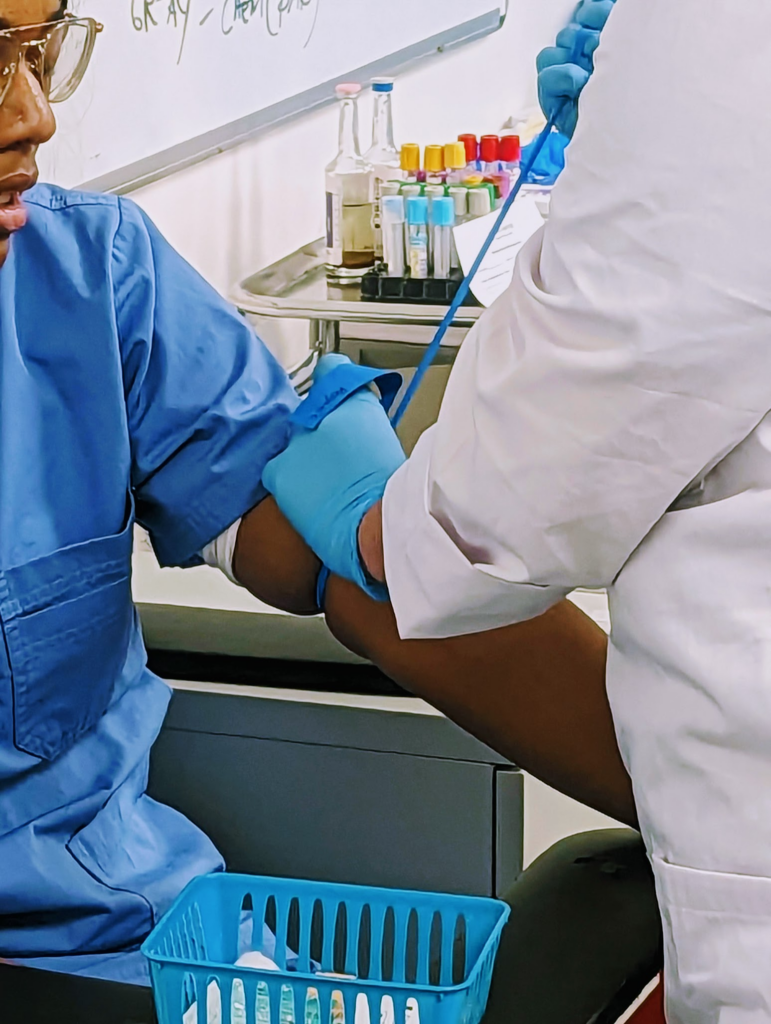While it is still early days, Artificial intelligence (AI) is increasingly making its way into healthcare, and many are wondering whether AI will replace healthcare jobs in the future. While there is no denying the potential for AI to transform healthcare, particularly in areas such as data analysis, automation, and workflow management, there are many reasons why AI cannot replace a phlebotomist.
Phlebotomists play a crucial role in healthcare settings, as they are responsible for drawing blood from patients for medical tests, transfusions, and donations. The phlebotomy process involves locating veins, communicating with patients, drawing blood, managing potential complications, and ensuring the accuracy of patient data. While AI can assist with some of these tasks, it cannot replace the human touch and skill required to perform these critical tasks.
One way to start a career as a phlebotomist is to complete a CDPH approved phlebotomy training program which RCI offers. Phlebotomy training programs teach students the skills and knowledge needed to perform phlebotomy tasks, including venipuncture, specimen handling, and infection control. Graduates of RCI’s phlebotomy training program are eligible to apply for their California Certified Phlebotomy Technician I (CPT1) license.
Phlebotomy training can also help start a career in which AI cannot replace. While AI can assist with some aspects of phlebotomy, such as vein visualization, patient identification, and data analysis, it cannot replace the need for human expertise, experience, and judgment. Phlebotomists play a crucial role in ensuring patient safety, managing complications, and providing emotional support to patients. The ability to read and respond to patients’ physical and emotional states, adapt to unique needs, and manage unexpected situations or complications requires human touch and skill that AI cannot replicate.
Furthermore, completing a phlebotomy training program can lead to a rewarding career with many opportunities for advancement. Phlebotomists can work in a variety of settings, including hospitals, clinics, blood banks, and research labs. They can also specialize in areas such as pediatrics, geriatrics, or oncology. With additional training and education, phlebotomists can also advance to other healthcare careers, such as medical laboratory technicians (MLT) or nurses. RCI offers an accredited MLT course here.
In conclusion, phlebotomy training can help start a rewarding career in which AI cannot replace. While AI has the potential to transform healthcare in many ways, including aspects of phlebotomy, it cannot replace the unique skills and expertise that a trained phlebotomist brings to the healthcare setting. RCI’s Phlebotomy training program teach students the skills and knowledge needed to perform phlebotomy tasks, pursue certification and licensure, and advance their careers. Healthcare professionals, including phlebotomists, play a crucial role in providing safe, effective, and compassionate care to patients, and their expertise and experience cannot be replaced by AI… at least not for a while.

